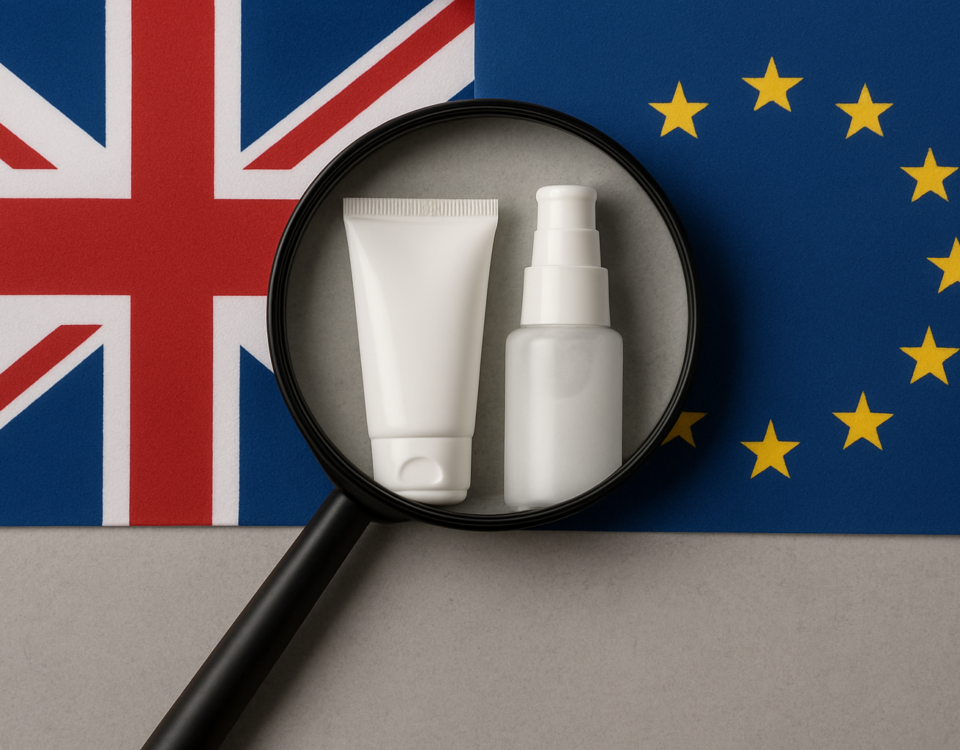
HOW DOES THE NEW CHINESE COSMETICS MARKET REGULATORY FRAMEWORK (CSAR) IMPACT TRADE WITH EUROPE?
27 May 2021
CLEAR celebrates its 10th anniversary this year!
19 January 2022According to the (French) e-commerce and mail-order sales federation (FEVAD), during the first quarter of 2021, the e-commerce sector (products and services) generated 30 billion euros in turnover, an increase of 14.8% for the same period of the previous year (1). This increase in on-line sales has been facilitated by the COVID-19 crisis which has behind the closure of numerous physical boutiques and retail outlets. This incredible figure clearly indicates just how important e-commerce has now become for society. Cosmetics brands are now being encouraged to invest further in e-commerce and digital marketing development to “boost” their sales and attract the more “hip” consumers. However, it would be highly unwise to start out without a sound knowledge of the more pertinent regulatory obligations.
In France, article L221-1 defines an internet sale as a contract established at distance between a professional and a consumer. Before completing a contract of sale, the professional must provide all of the information laid out in article L.221-5 of the (French) Consumer Code (2), and this must be in French, legible and easy to understand. This information must include:
- identity of the professional (full name for individuals, registered trading name for corporations), including contact details (postal address, email and telephone number). Company registration number (RCS) and VAT registration number, if applicable;
- identity of the web-host, responsible as the web-content publisher. This must indicate the identity and contact details of the web-hosting provider;
- the professional must deliver the item or supply the service to the consumer on the specified date or within the given time period, as stated in article L216-1 of the (French) consumer code;
- information concerning the specifications of the products or services on offer, products or services must described in detail with photos and technical specifications (article L 111-1 of the (French) Consumer Code),
- pricing information must be in euros and inclusive of all taxes (article L 1 12-1 of the (French) Consumer Code). Customs duties must be added for purchases outside of the European Union;
- warranty and guarantee information
- the conditions, time periods and right of withdrawal methods along with a standard withdrawal form.
- information concerning the delivery or service provision date.
taken from the article: “L’ACHAT EN LIGNE” (ONLINE PURCHASING) published by the direction générale de la concurrence, de la consommation et de la répression des fraudes (DGCCRF – Directorate-General for Competition, Consumer Affairs and Prevention of Fraud), which lists some of the mandatory information to be provided to the consumer by professionals who propose mail-order or on-line sale contracts, as laid out in article L.221-5 of the (French) Consumer Code (2).
Professionals must also comply with the General Data Protection Regulation (GDPR) which covers the processing of the personal data of e-commerce web-site users (3) as well as the dispositions laid out in (French) law n°2004-575 dated 21 June 2004 related to building confidence in the digital economy (confiance dans l’économie numérique – LCEN) which is mainly concerned with protecting consumers from cyber-criminals and unsolicited advertising (4).
Rather than creating their own web-site, many retailers have opted to use marketplaces like Amazon, Cdiscount, etc. Some of these digital platforms apply abusive and/or unfair business practices. Consequently it has become important to establish a legal framework to encourage fair-trading and provide further protection for consumers. To this end, the European Commission published the provisional “Digital Services Act” (DSA) and “Digital Market Act” (DMA) regulations on 15 December 2020. On one hand, the DSA aims to render digital platforms responsible for supervision of illicit, dangerous or fraudulent content. On the other hand, the DMA aims to supervise any practices which may have a negative effect on fair trading policy (5).
As regards the terms and conditions of sale applicable for on-line cosmetic product sales, the (EC) regulation 1223/2009, dated 30 November 2009 concerning cosmetic products does not propose any specific guidelines for these types of sales. La direction générale de la concurrence, de la consommation et de la répression des fraudes (DGCCRF – Directorate-General for Competition, Consumer Affairs and Prevention of Fraud) has stated that the on-line sale of cosmetic products is subject to general consumer law, notably article L.111-1 which obliges retailers to provide their consumers with essential product specifications. Consequently, the essential product information label items (use, composition (INCI list), usage instructions and nominal quantity) must be available to the consumer before they make their purchase (6).
As retailers turn increasingly towards on-line sales via their own web-sites or digital platforms, it remains essential that they stay up to date with the ever-changing regulatory frameworks that apply to the sector. Any failure to provide the obligatory before purchase information will be considered as false advertising and will lead to heavy sanctions. Consequently, responsible persons, distributors and manufacturers must make sure that they thoroughly monitor all of the mandatory information displayed on their on-line retail web-sites as well as the conditions of access to that information. This is where regulatory departments and marketing managers should intervene regularly, to ensure that the information presented on web-sites is fully up to date.
1 “BILAN E-COMMERCE AU 1ER TRIMESTRE 2021: LES VENTES SUR INTERNET EN HAUSSE DE +15%”, (E-COMMERCE REPORT FOR THE 1ST QUARTER OF 2021: INTERNET SALES INCREASE BY +15%) article published by the Fédération de l’e-commerce et de la vente à distance (FEVAD – e-commerce and mail-order sales federation). Date: 27/05/2021. Consulted: 03/08/2021. Accessible via:
2“L’ACHAT EN LIGNE”, (ON-LINE SALES) article published by the direction générale de la concurrence, de la consommation et de la répression des fraudes (DGCCRF – Directorate-General for Competition, Consumer Affairs and Prevention of Fraud). Date: 28/01/2019. Consulted: 28/07/2021. Accessible via:
L’achat en ligne | economie.gouv.fr
3 “RGPD : de quoi parle-t-on ? ” (GDPR: what are we talking about?), article published by the commission nationale de l’informatique et des libertés (CNIL – French Data Protection Commission). Date: NA Consulted: 03/08/2021 Accessible via:
RGPD : de quoi parle-t-on ? | CNIL
4“Loi pour la confiance dans l’économie numérique (Bill for building confidence in the Digital Economy) – Published in JORF n°143 dated 22 June 2004”, published by the (French) Ministry of Law and Order: 21 June 2004. Consulted: 03/08/2021 Accessible via:
Justice / Textes et réformes / Loi pour la confiance dans l’économie numérique
5“Grandes plateformes du numérique: vers le Digital Services Act et Digital Markets Act”, (Major digital platforms: towards the Digital Services Act and the Digital Markets Act), article published by the (French) Ministry for the Financial Economy and Recovery. Date: 16/12/2020 Consulted: 03/08/2021 Accessible via:
6“VENTE EN LIGNE DE COSMETIQUES : LA LISTE DES INGREDIENTS DOIT ETRE AFFICHEE”, (ONLINE COSMETIC PRODUCT SALES: INGREDIENTS LISTS MUST BE DISPLAYED) article published by the Direction générale de la concurrence, de la consommation et de la répression des fraudes (DGCCRF – Directorate-General for Competition, Consumer Affairs and Prevention of Fraud) on the 11/12/2017. Consulted: 28/07/2021 Accessible via:
Vente en ligne de cosmétiques : la liste des ingrédients doit être affichée | economie.gouv.fr




